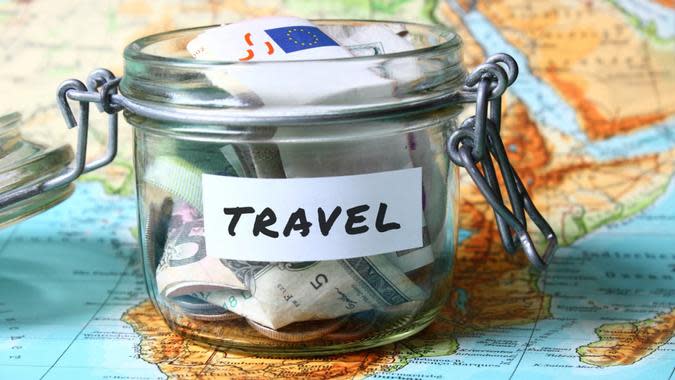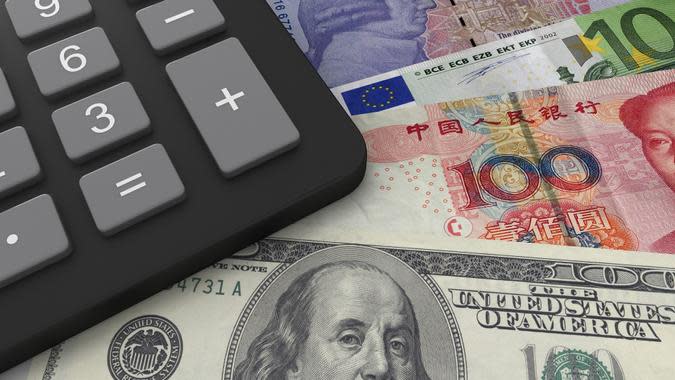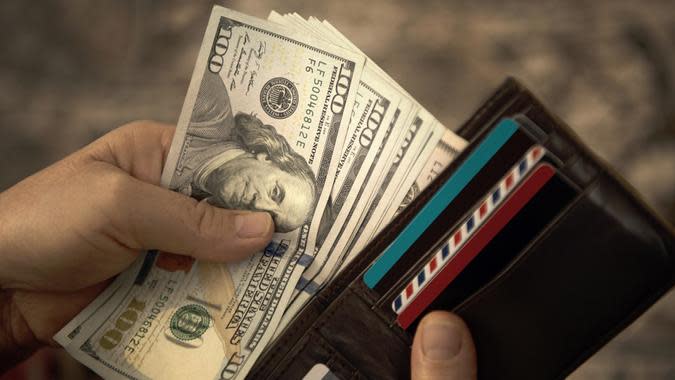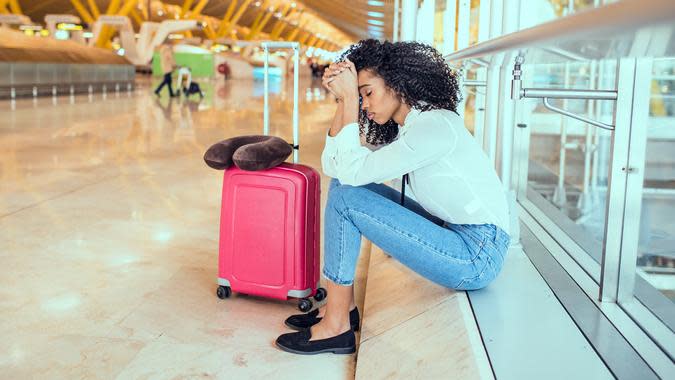6 Top Money-Saving Tips for International Travelers

The pandemic shut down the travel industry, but when the virus passed and the planes started flying again, tourists found they had another travel restriction to deal with. This time it wasn't a government mandate -- it was high prices brought on by inflation.
Explore: Your Biggest Money Etiquette Questions Answered
Here It Is: Our 2022 Small Business Spotlight
A new study from Wise found that international travelers are now more concerned about money than COVID as they plan their getaways. Rising costs are impacting international travel plans for almost half of consumers, and the No. 1 roadblock for vacationing abroad is simply not having enough money to afford the trip.
If you're considering traveling overseas but you're worried about the financial pickle a trip like that could put you in, you're in good company. The Wise study found that the mid-vacation emergency that travelers now fear most isn't getting sick or getting robbed -- it's running out of money.
The good news is that every traveler can scale back the cost of an international trip by making smart money moves along the way. To get the inside scoop on how to shrink your travel budget without skimping on memories, GOBankingRates interviewed Wise travel partner and 12-time Heartland Emmy Award-winning travel video journalist Jules Broste of TravelingJules.
Here are her best tips for cutting costs as you jet set.

Set a Budget and Stick to It
Whether your journey takes you to Canada, Croatia or anywhere in between, you're bound to be swept up in the sights, sounds and tastes of your once-in-a-lifetime trip. And, because it is so rare and special, the YOLO mindset can set in.
Once it does, it won't be long before it spreads to your wallet.
"It's easy to overspend while on vacation, especially abroad, blindly swiping your credit card and planning to deal with it later when you are back stateside," said Broste. "Sitting down ahead of time and nailing down a budget will help nix this habit and avoid vacation debt regret."
Take Our Poll: Do You Tip for Service?

Convert Currencies Ahead of Time
Converting your greenbacks into local currency is something you want to do while you're still on this side of the ocean. Once you get to where you're going, the currency exchange shops know that they're your only option -- and that will be reflected in their higher prices.
"Exchange rates are constantly fluctuating and sometimes confusing," said Broste. "There's a good chance you can get a more favorable rate by dealing with your bank or money transfer service in the U.S. When looking into a money transfer account, seek out one with autoconversion features that let you convert currencies once your desired exchange rate is met."

Live, and Spend, Like a Local
You're probably going to want to dine in at a few restaurants while you travel, and there's no harm in that. But make sure those moments are planned and deliberate -- likewise, for taxi rides, hotel stays and even coffee. The rest of the time, follow the same budgeting guidelines that you would follow to save money back home.
"For example, shop at food stores and cook meals," Broste said. "Take public transit or rent a bike, and take advantage of one of the many hospitality exchange sites for affordable accommodations."

Create a Second 'Wallet'
Your wallet can be lost or stolen while you're on vacation, just like it can back home, even if you're alert and attentive. The difference is that if it happens overseas, you're far away from your bank, your backups and all the things you need to get back on your feet.
Broste offers the clever suggestion of keeping a clandestine stash that thieves will bypass just in case the worst happens.
"Keep a debit card, a credit card and some cash in your actual wallet," she said. "But make one using an old deodorant tube or makeup case with a different debit card, a different credit card and some spare cash, and store it in a hidden compartment in your luggage for emergencies."

Be Prepared for Flight Cancellations
This year was an unusually hectic and frustrating one for many travelers. According to Simple Flying, there were more cancellations by the start of July 2022 than in all of 2021. Be prepared with a rebooking strategy just in case you find yourself in-country for longer than planned.
"If you find yourself abroad for a few more days than anticipated as a result of rebooking, use a multi-currency or universal account to save money in FX fees and exchange rates and bring down the total cost of your extra days away," said Broste.

If You Have To Cancel, Think Before You Rebook
Even if the airlines are running smoothly, you might have to rebook to deal with an emergency or shuffling of your schedule. This can get expensive fast, so plan for this before you make your travel arrangements.
"Read the fine print and ask questions," said Broste. "Do you need to rebook by a certain date? Can you change your destination? Are your checked bags covered? If you book a costlier flight, will you incur the costs? Make sure you know exactly what you are getting and any restrictions to avoid any surprise expenses. Before rebooking, consider what else you've booked as part of your original trip and any losses you could incur, financially and experientially. Is your hotel non-refundable? Would you miss an event like a concert that you purchased tickets for, a birthday or other life milestone? Be sure to chart what exactly you'd need to move, what'd you'd miss out on, and the money you could lose as a result."
More From GOBankingRates
This article originally appeared on GOBankingRates.com: 6 Top Money-Saving Tips for International Travelers

 Yahoo Movies
Yahoo Movies 
